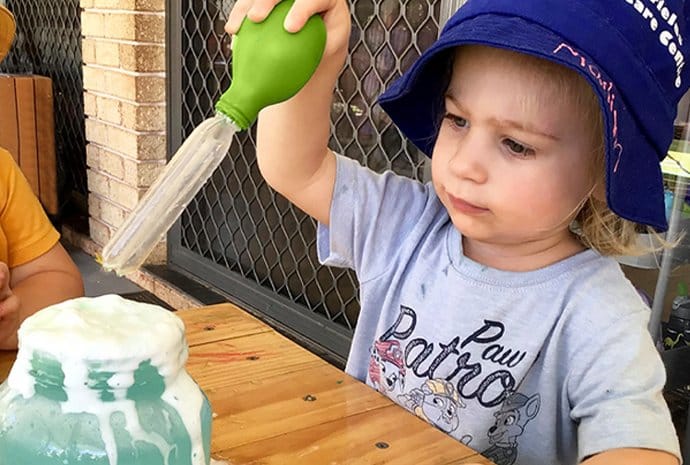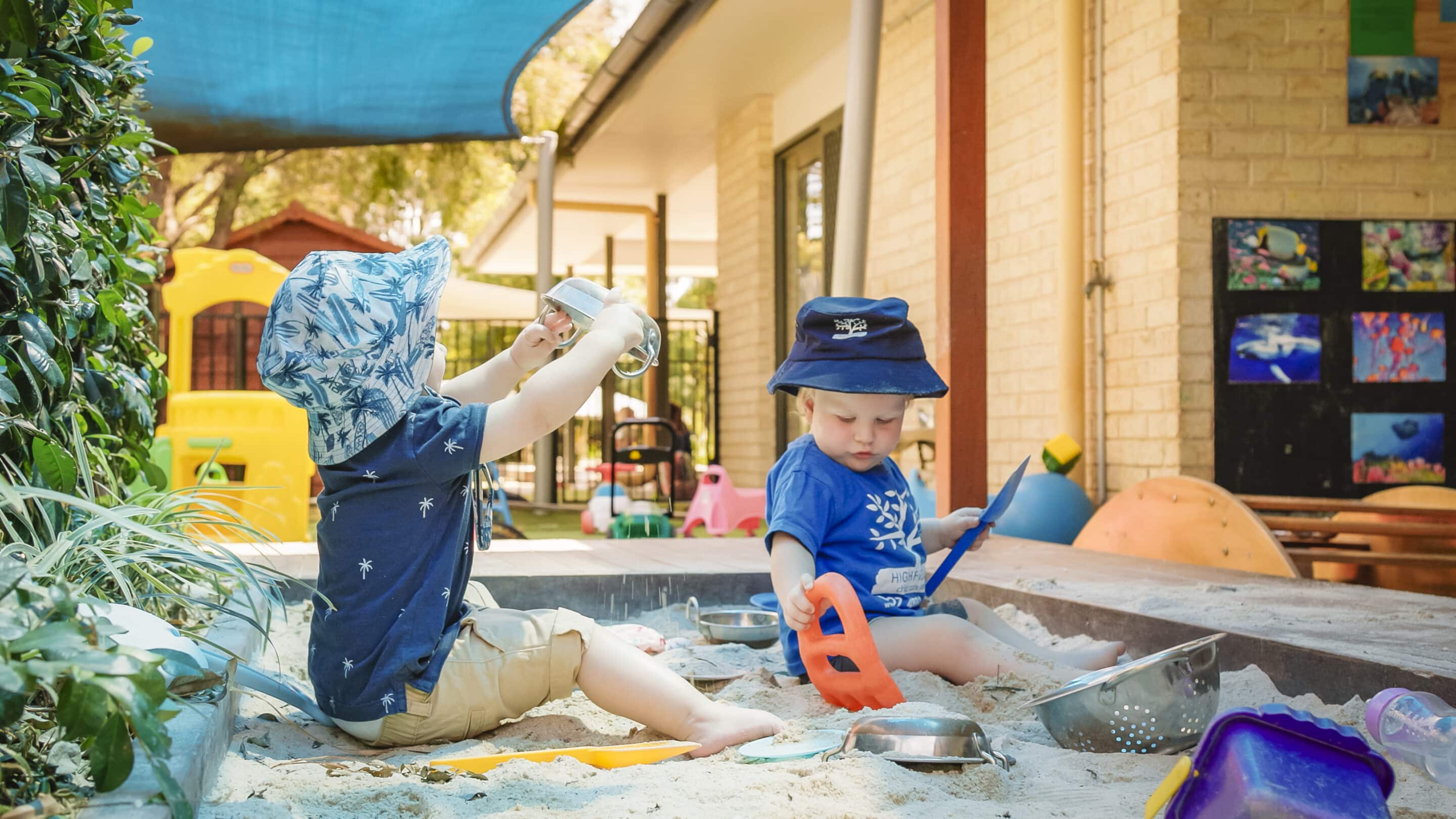Children’s brains are constantly and rapidly growing – from the moment they are born and even while still inside the womb. Within the first year of life, the brain reaches 50% of its adults weight. A child’s brain has typically grown to 80% of its adult weight by age three. Plus, it is estimated that a child’s brain develops 700 neural connections each second during those first three years.
Adults can support babies and children to build and increase synapsis in the brain through interactions and play. Brains have the most growth during birth and five years of age. To support lifelong learning, babies and young children need to develop as many synapses as possible.
Messy play is both engaging and enjoyable while also supporting the development of a child’s senses, something that is critical for learning. The freedom of messy play also fosters creativity and experimentation. Plus, making a mess and pushing boundaries helps children to build a sense of self.
While messy play can seem chaotic, it requires a high level of concentration. As a child considers each new discovery, they concentrate on each sensation while working through their feelings. Doing so develops their assessment and valuation skills.
The more children play messy, the more both yourselves and they will get used to it, and their learning opportunities will increase. By embracing mess as an adult, it shows children that adults understand their drive to make mess, but also demonstrates that there is a time and a place for everything, including making messes.
Don’t forget that everything can be cleaned, and as we value messy play, we also hope that you foster this in your time. Mess is inevitable, but the benefits of children engaging in messy place significantly outweighs the mess.












